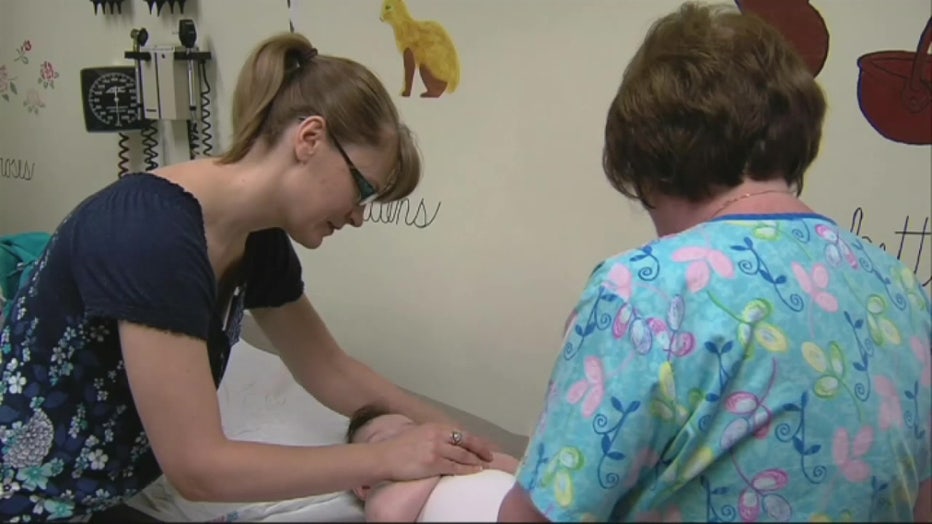New antibody shot that will protect babies and toddlers against RSV available this fall

New drug protecting children against RSV
A new drug will be available this fall that will protect children against RSV
TAMPA, Fla. - A new antibody shot to help protect babies and toddlers against RSV will be available to babies starting this fall.
"Everyone knows about RSV, but unfortunately, it was not widely or broadly talked about. But it affects children every year," said Dr. Fernando Bula Rudas, a physician in the pediatric infectious diseases program at Johns Hopkins All Children’s Hospital in St. Pete.
On Friday, the Centers for Disease Control and Prevention recommended nirsevimab, which will be available under the brand name Beyfortus, to fight respiratory syncytial virus or RSV.
The virus puts about 58,000 to 80,000 children younger than five years old in the hospital, most of them infants, according to the CDC.
READ: 1st pill for postpartum depression approved by FDA
"So it's very promising that we have a product that hopefully is going to help prevent like the severity of this illness in many, many children, and so we are very excited," said Bula.
The newly approved shot by the CDC and FDA is recommended for all infants under eight months going into their first RSV season and for higher-risk children between eight and 19 months.

That's important because Tampa virologists who have studied RSV for decades, like Dr. Michael Teng, said Florida's RSV season lasts longer.
"This is the first time that we've had really a long-lasting antibody," said Dr. Teng, a USF Health virologist.
Kids who go through severe RSV can develop wheezing, asthma and other long-term problems.
READ: Golf cart-related injuries in young children on the rise, physicians say
Dr. Teng said the shot bridges the gap for all kids, healthy and higher risk, so they can fight off infections as they get older.
"This coming out now is really good if they can ramp up production and make it widely available. I think for us in Florida, it will be good," said Teng.
The CDC plans to include the antibody shot in the Vaccines for Children program. That allows the shot to go out to about half of the country's children for free, and they expect it to be ready this fall just in time for RSV season.

